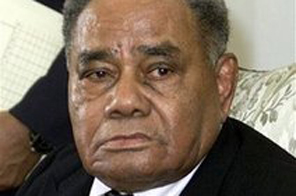Commonwealth suspension for Fiji
SUVA: Fiji will likely be suspended from the Commonwealth bloc, New Zealand said Wednesday — a day after its military ruler strengthened his grip on power by replacing the ailing president with a stronger ally.
Self-appointed Prime Minister Frank Bainimarama, the armed forces chief who seized power in a 2006 coup, announced President Ratu Josefa Iloilo would step down on Tuesday.
He will be replaced in the interim by Vice President Ratu Epeli Nailatikau, widely seen as a mentor for the ambitious prime minister. Nailatikau was appointed foreign minister after the coup and assured Pacific leaders that elections would be held by April 2009 — a pledge the regime has since broken, leading to its growing isolation.
Fiji has already been suspended by the Pacific Islands Forum, a regional bloc of 16 nations, and major trade partners, including the European Union, Australia and New Zealand, have imposed sanctions on it.
On Friday, a group of foreign ministers from the 53-nation Commonwealth group of Britain and its current and former colonies is due to meet in London to consider whether Fiji should also be suspended from that bloc.
"I think there's a full suspension from the Commonwealth imminent at some stage," New Zealand Foreign Minister Murray McCully said Wednesday.
The foreign ministers' decision will be considered by the full Commonwealth later in the year. A suspension could result in the loss of some aid and other support for the already struggling economy.
McCully said Nailatikau's appointment was "another ... in an array of illegitimate actions" by Bainimarama's regime.
"There is no immediate prospect that the international community is going to go opening any great doors for them to enter," he told New Zealand's National Radio.
Fiji has been suspended from the Commonwealth twice before — after its twin military coups of 1987 and again after a third coup in 2000.
Nailatikau, a former armed forces commander, was appointed Bainimarama's foreign minister after the 2006 putsch. He was nominated as vice president April 2007 but rejected by the then-powerful indigenous Great Council of Chiefs, prompting Bainimarama to suspend the body. Iloilo appointed him vice president in April 2009.
Iloilo, 88 years old and sick with heart disease, announced his retirement only four months after he threw out the South Pacific nation's constitution, fired the judiciary, began ruling by decree and imposed emergency controls to cement Bainimarama's grip on power.
Iloilo was widely seen as being under the influence of Bainimarama even before the military chief toppled elected Prime Minister Laisenia Qarase — and it was Iloilo who appointed the strongman as prime minister after the coup.
Observers in Fiji say his replacement by Nailatikau only underscores the regime's dominance and could strengthen it.
McCully said no early positive change is expected from the Fiji regime.
"Everyone awaits the day when they decide they really do want to re-engage with the international community and take the necessary steps to get there," he said.






